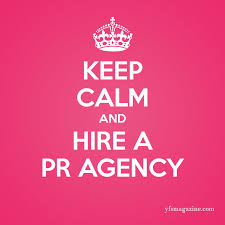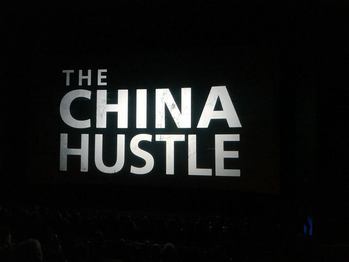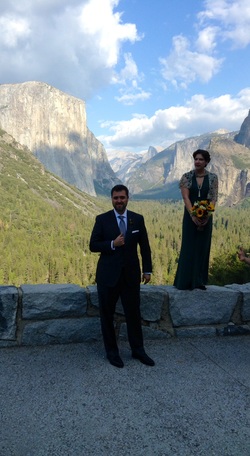|
Trust and authenticity are words most people associate with political campaigns. If you haven’t heard them before, just wait for the coming Presidential election frenzy. But what we’ve learned as communications practitioners is that these two concepts also matter in investing and asset management. In fact, a recent survey of big institutional investors showed that “trust in the brand” ranked higher in importance than “performance” when it came to picking money managers.
Last month, Greenwich Associates, the big consultant to pension funds, endowments and other institutions, published an important survey on why allocators pick the asset managers they partner with. It also asked institutional investors how they interacted with various forms of media. Here are the findings we found most interesting. (The full study is available here.)
The takeaway from the study is something we have long known as communications experts but have found lacking in the asset management community – building a brand takes a long time and a thoughtful and concerted strategy is a key component to competing in today’s market. Here’s a paragraph from the Greenwich study we found especially compelling: A big pension fund isn’t going to allocate millions of dollars based on a single piece of research from an asset manager, of course. However, a track record of high quality, timely and relevant content will help ensure that an asset manager is top of mind and, consequently, invited to the table when a major decision is being made. Once again, social media proved key at this final stage. Forty-three percent of investors participating in the study said that information learned via social media had influenced an investment recommendation or decision, compared to 35% based on information learned via news media. Meanwhile, information from social and news media was equally likely to influence a decision to work with a particular company or client. For asset managers, whether they’re well established or just starting out, deciding whether to engage with the public is really no longer an option. Either you tell your story or someone else will, or even worse, it will never get told.  Occasionally, prospective clients reach out to us who have never engaged with an outside public relations agency before. This lack of experience can present a challenge, and an education about the overall PR process itself becomes vital if the prospective clients hope to achieve their business goals. Those new to PR are usually new to the concepts of an integrated communications strategy, how it works in practice, and what the cost and ROI will be. Many of these businesses that are new to these concepts have gone on to become long-term DLPR clients. But sometimes, the real challenge is overcoming preconceived notions of what a PR agency’s communications program can deliver and how the process should work. Based on these past experiences — and in an effort to help prospects and everyone engaged in the public relations process — we thought it would be helpful to compile a list of “9 things to know” before hiring an outside communications consultant:
Keeping these nine points in mind before and during an engagement with a communications firm will not only align expectations, but also create a more valuable and successful PR program.  The China Hustle, a documentary about short sellers and their discovery of epic fraud in China. The China Hustle, a documentary about short sellers and their discovery of epic fraud in China. In 2010, a small group of mostly amateur investors began researching dozens of Chinese public companies traded on North American stock exchanges. Share prices were doubling and tripling over short periods of time, and the sleuths wondered if the boom was too good to be true. What they discovered was a massive string of frauds led by companies whose business was a fraction of what they were telling shareholders. It was a house of cards ready to blow over. These investors, including Dan David of FG Alpha Management and Carson Block of Muddy Waters Capital (both DLPR clients), shorted the stocks and published their research online for everyone to scrutinize. While the stocks usually plummeted in value, these so-called activist short sellers were often met with a biting blowback from the investment industry and many China bulls on Wall Street. Nevertheless, they continued to alert regulators, lawmakers and everyday investors, but little or no immediate action was taken even as massive regulatory overhauls such as Dodd-Frank targeted other corners of the financial industry. Despite some high-profile blowups, like Sino Forest, which Muddy Waters identified and Canadian authorities confirmed was a giant fraud, most of the wrongdoing went unreported outside of the major financial media. But in early 2015, Sarah Gibson, a documentary filmmaker, caught on to the story and approached us about filming some of our short seller clients. More than two years later, The China Hustle premiered at the recent Toronto International Film Festival to a packed house. In addition to Gibson, who is a producer, the film was written and directed by Jed Rothstein, executive produced by Alex Gibney and Frank Marshall, and backed by 2929 Entertainment (led by Mark Cuban and Todd Wagner). Variety called it “wildly entertaining” and dubbed the film a sequel to The Big Short. It “is assured a theatrical push and a long life on streaming,” they said. If it attracts wider attention, The China Hustle will hopefully help the public understand why markets need highly skeptical investors who put their money and reputations on the line. Devising communication strategies for activist short sellers is never easy - it’s a constant battle to educate the public on why they should be taken seriously. Short sellers are often criticized by the media and business leaders and have been sued for billions of dollars by public companies with vast resources and global reach. No matter how accurate their research is, activist short sellers are almost always cast as alarmists who yell fire in crowded theaters and profit from the ensuing stock selloff. But convincing the public that activist short selling adds value to our markets is tough - there’s something about betting against a company that rubs people the wrong way. Even after the premiere of the film showing the benefits these companies provide, an audience member called for a ban on short sellers in the market during a Q&A session with the filmmakers and others. “Short sellers are doing what the regulators aren’t doing and they are policing the market in a way the regulators aren’t,” said Gibney, an Oscar-winning documentary filmmaker (Enron: The Smartest Guys in the Room). Dan David, who is also a co-founder of GEOInvesting and one of the heros of the film, called the idea of a ban “epically ridiculous” and explained that two sides of every story deserve to be told. The company’s public filings tell one side and short sellers tell another. The market decides which side to believe. Short sellers search in corners of the financial world that regulators and other official watchdogs either don’t have the resources or expertise to uncover. Our recognition of the value these firms can provide explains why our firm represents selected short sellers, as well as conventional investment firms. As the film shows, nearly everyone in the markets, from law firms and accounting firms to investment banks turned a blind eye to multiple red flags as long as investors were hot on China. Even with the exposure of dozens of Chinese frauds by short sellers, the schemes have continued, albeit at a much slower pace, and almost no one has been held accountable. Pension funds and other investors have lost billions. Yes, the shorts and their investors can make money on these bets, and they don’t hide that fact. But there are major risks involved. A short’s research can be right, but the market may not agree with it. There have been plenty of times when short sellers were squeezed and shares rocketed upwards. It’s a dangerous and risky game (one researcher in the film was jailed for two years in China) and potential losses are unlimited because there’s no ceiling on how high a stock price can go. Bottom line: Activist short selling is a tough business, but the markets should be thankful that it exists. Next up, the film has its U.S. premiere at the Hamptons International Film Festival. What We've Been Reading - Week of Sept. 4
Markets & Economy:
One of our clients, Mark Yusko of Morgan Creek Capital Management, recently sat down for a lengthy interview with Real Vision TV, a new video on-demand channel that features some of the world's smartest investors talking about global markets, the economy, politics and other issues. Here's a preview of Mark's interview: We get requests for proposals, or RFPs, on a weekly basis these days and one thing I've noticed is that they all seem to ask the same questions. It's almost as if those looking for public relations advise are all playing from the same template. I saw two RFPs over the last two months from large asset management firms that had the exact same wording in the majority of their questions. I had to ask myself how much these firms actually knew about hiring a strategic communications consultant, or if they merely Googled around to find out what to ask. (Full disclosure: I've done the same thing when hiring a service provider.)
Having worked in the industry for almost five years now, I thought I'd put together a list of the tough questions that everyone should ask, especially when looking for a PR firm that is specializes in financial services. Unlike some other industries, financial services really requires a specialist firm who knows the message, understands the current landscape and has a solid understanding of all constituencies. You don't want a firm who needs a "refresher course" on what an exchange traded fund or managed futures strategy is - they should know.
Source for top 25 - Institutional Investor Magazine  If you want to see one of the best rollouts of a fairly complex business book, witness Michael Lewis’ extensive PR campaign for Flash Boys. He started with a “60 Minutes” exclusive where he said the “U.S. stock market is rigged”—not exactly earth shattering, but it got a debate going on Twitter among Wall St. columnists and other pundits. (Here’s a good one) The splashy “60 Minutes” debut then basically steamrolled into an all-day debate and coverage of high frequency trading on all of the business networks and the main networks (including CBS, of course). The New York Times had no less than four pieces from the book including an excerpt in the New York Times Magazine, a DealBook column by Andrew Ross Sorkin, an official review of the bookand a piece about all the hoopla. The Wall Street Journal had its own review and so did other major outlets. A search in Factiva yielded 385 mentions for the book in the last 24 hours, and that doesn’t include blogs. Then, a BNP Paribas executive wrote to all of his clients and told them Lewis was invested in IEX, the platform to combat high frequency traders that he wrote about. That prompted Lewis to issue a strong rebuttal on his Facebook page calling out the BNP executive by name. Twitter went nuts in the afternoon just as the whole Lewis frenzy was beginning to die down. BuzzFeed obtained a copy of the email (the post got 58,000 views in less than 24 hours), which fueled the fire even more. To top it all off, in a highly unusual move, the FBI reached out to media outlets to let them know they had been running an investigation of high frequency trading for over a year. AND THAT’S JUST THE FIRST DAY! The book is of course No. 1 on the Amazon Best Sellers list right now. By Zach Kouwe Zach Kouwe is a Vice President at Dukas Public Relations.  By Zach Kouwe Of all the things that could go wrong during or leading up to a wedding I never anticipated having to deal with a government shutdown. I guess that's something you need to take into account these days when planning a wedding in Yosemite National Park, or any national park or monument for that matter. Once it looked like the park was going to be closed, we marshaled the forces of public relations....(BuzzFeed, a trade publication and the BBC.) But as the wedding date approached, it was clear the Congress wan't going to get its act together in time. Well, in the end it actually ended up working out in our favor. We had the ceremony in the park anyway - the park Rangers didn't seem to care - and nobody was in the park. That made for some amazing pictures and a cool story. I can't wait to tell my kids mom and dad snuck into Yosemite to get married! |
Categories
All
|
|
Please see Terms of Use
|
 RSS Feed
RSS Feed